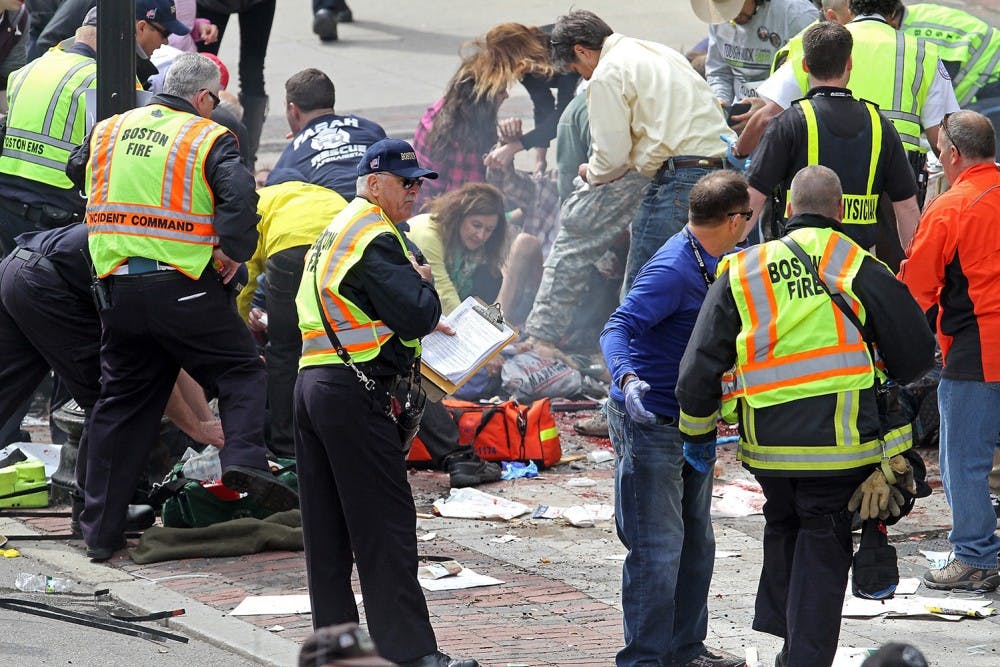9 in athletic training group treat marathon runners, possibly spectators
Seven athletic training students and two certified athletic trainers from USC were at the Boston Marathon Monday when two bombs exploded near the finish line. The blasts killed three and caused more than 130 injuries, according to Boston police.
The nine-person USC delegation was all safe and accounted for as of Monday afternoon.
Amy Sanderson, a master’s of business administration student, was confirmed to be safe. She finished the marathon in four hours. The explosions went off four hours into the men’s race, which began after the women’s race. A business associate confirmed she was unharmed but said he had not heard anything more from her.
Dean of the College of Mass Communications and Information Studies Charles Bierbauer said his daughter, a Pennsylvania resident, finished the marathon shortly before hearing the explosions nearby. She was also uninjured.
Some of the injured runners and spectators lost legs in the explosion. Blood pooled on Boylston Street, where a crowd cheered on competitors shortly before the bombs detonated.
After the blasts, the USC students and athletic trainers treated injured athletes and possibly spectators in “outside ERs,” according to Toni Torres-McGehee, graduate director of the Athletic Training Education Program.
Before the explosions, the group was split between two tents, one of which was near the finish line, Torres-McGehee said. The other was farther away, possibly at the race’s halfway point.
None of the students or athletic trainers had cellphone service besides text messaging, and many were too busy treating injuries to check their phones, according to Torres-McGehee.
“It’s pretty chaotic right now,” Torres-McGehee said.
Cellphone service in Boston was completely shut down at one point Monday afternoon to prevent remote detonations of any additional explosives.
The group from USC was scheduled to leave Boston today, but their departure may be delayed if travel problems related to the incident arise, university spokesman Wes Hickman said.
Torres-McGehee said they were exploring alternate modes of transportation and hoped to have the students back by Wednesday.
USC’s athletic training program sends a group of students and trainers to the Boston Marathon every year to treat runners. Torres-McGehee went to last year’s marathon and said the students would not be finished treating runners for hours after the race, even in a typical marathon.
And despite their extremely atypical experience at the marathon, Torres-McGehee said that all of the students were “doing great” Monday night.

